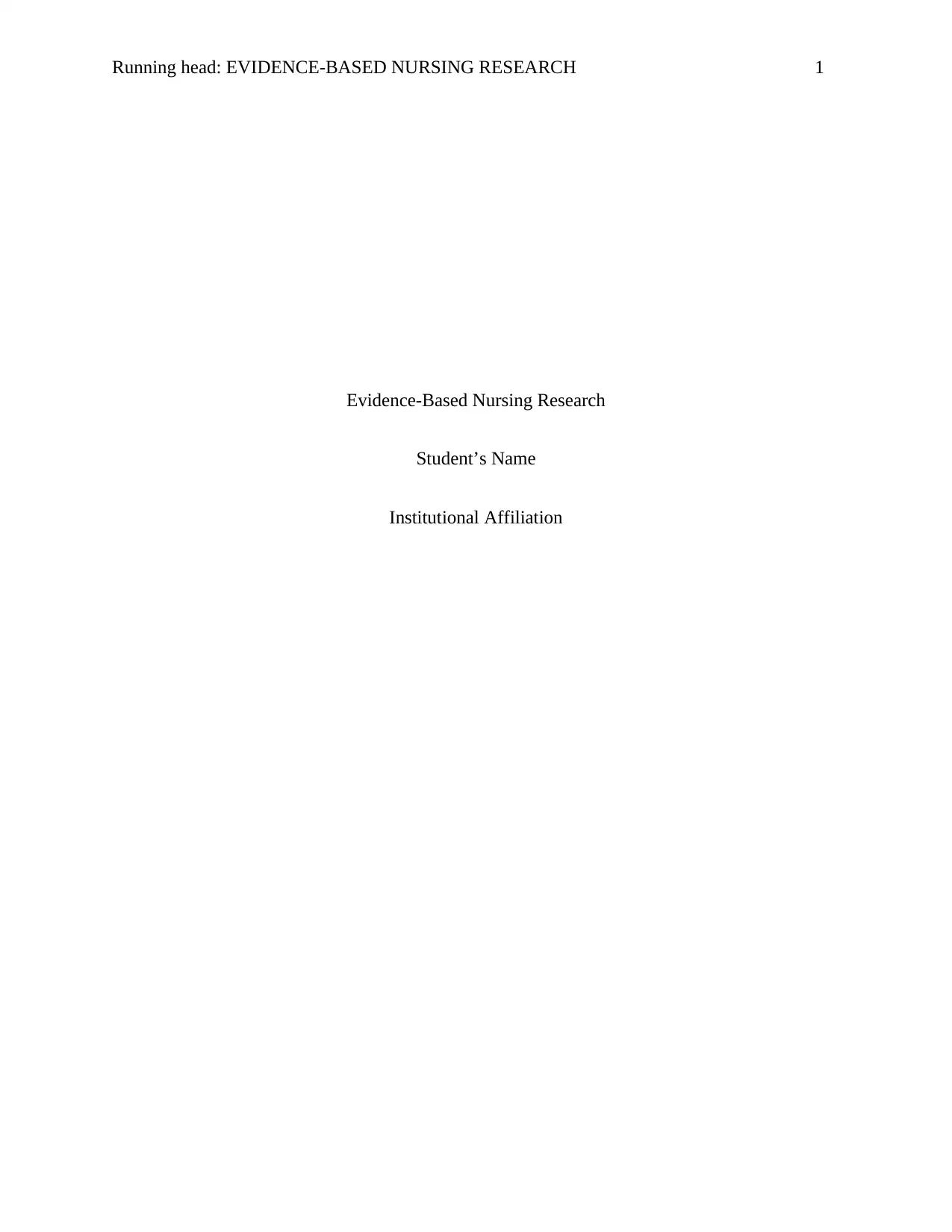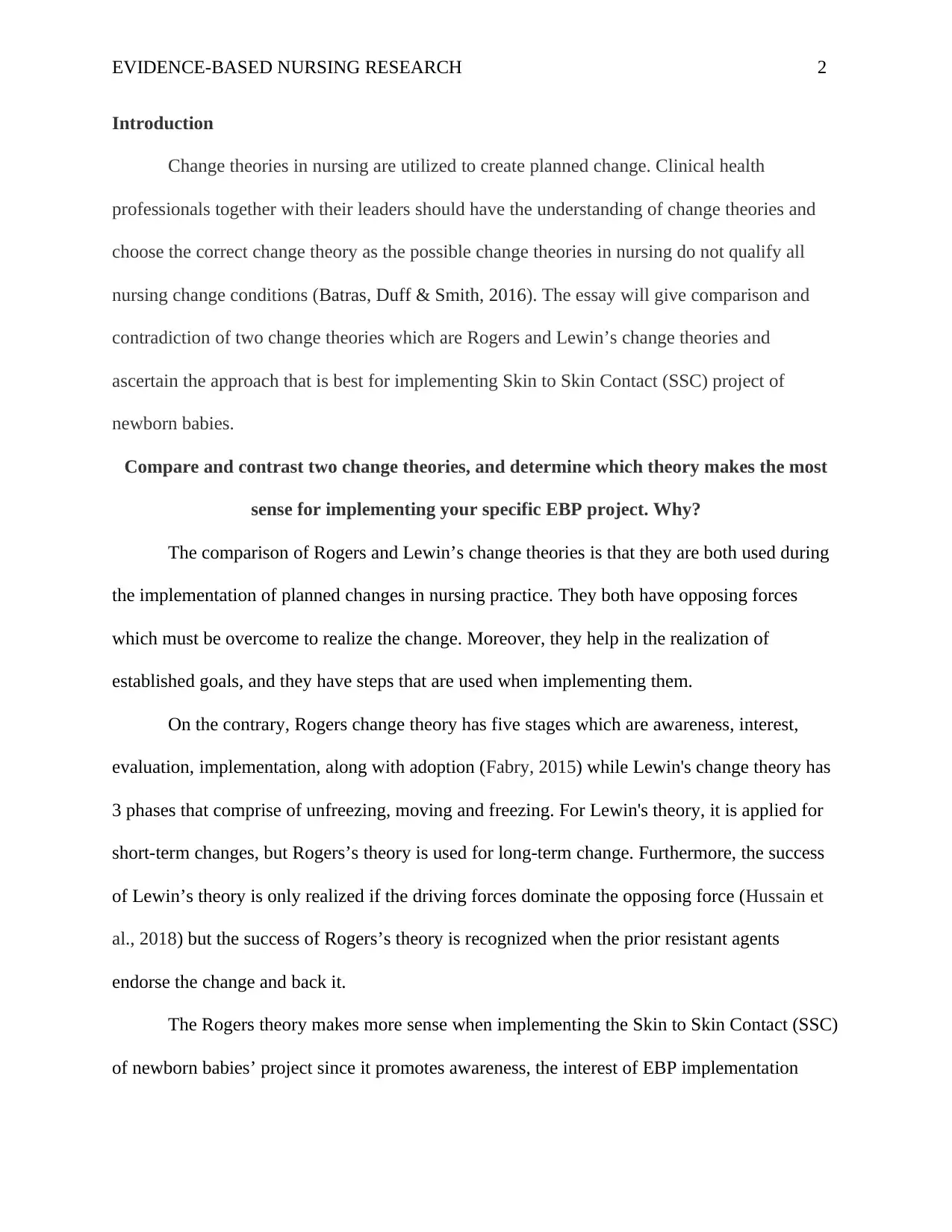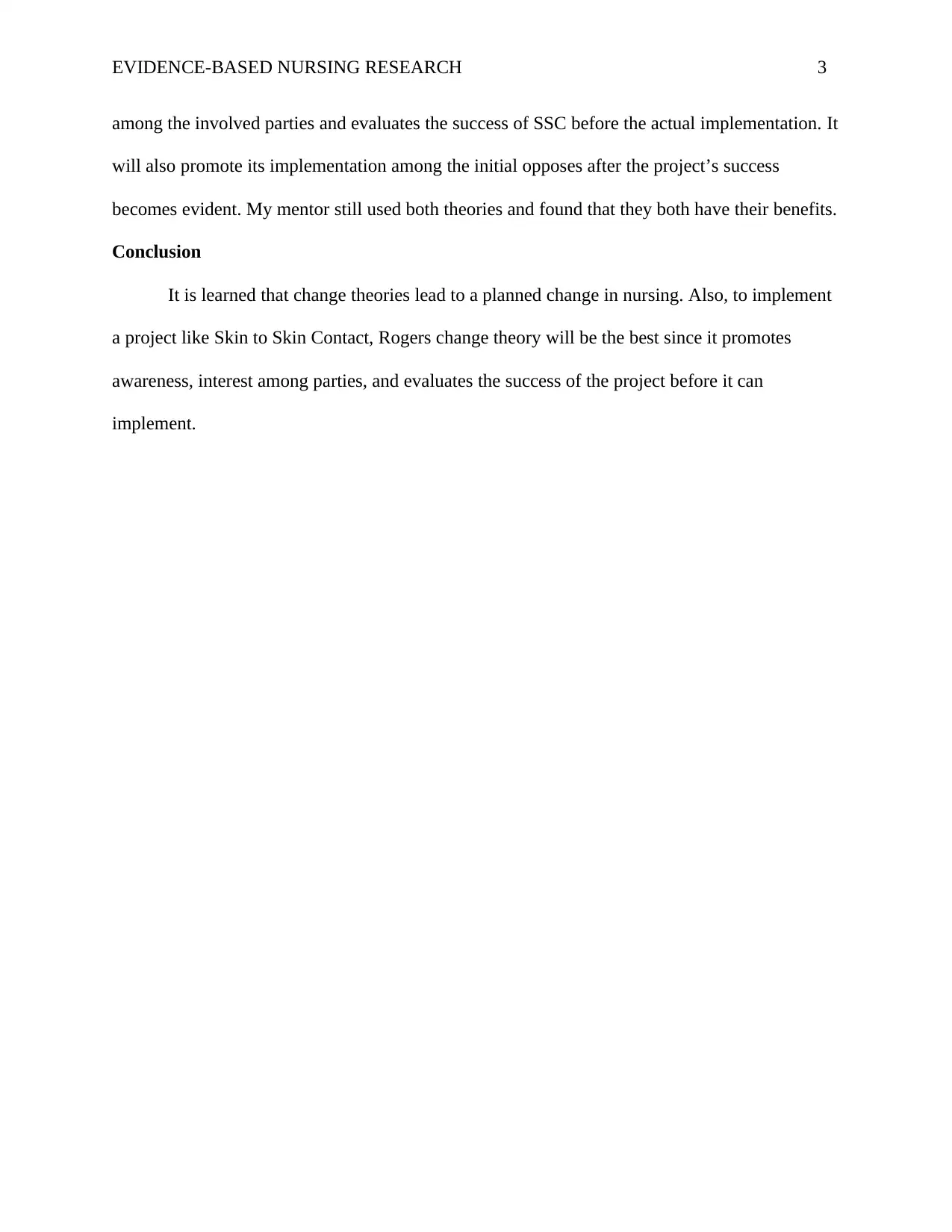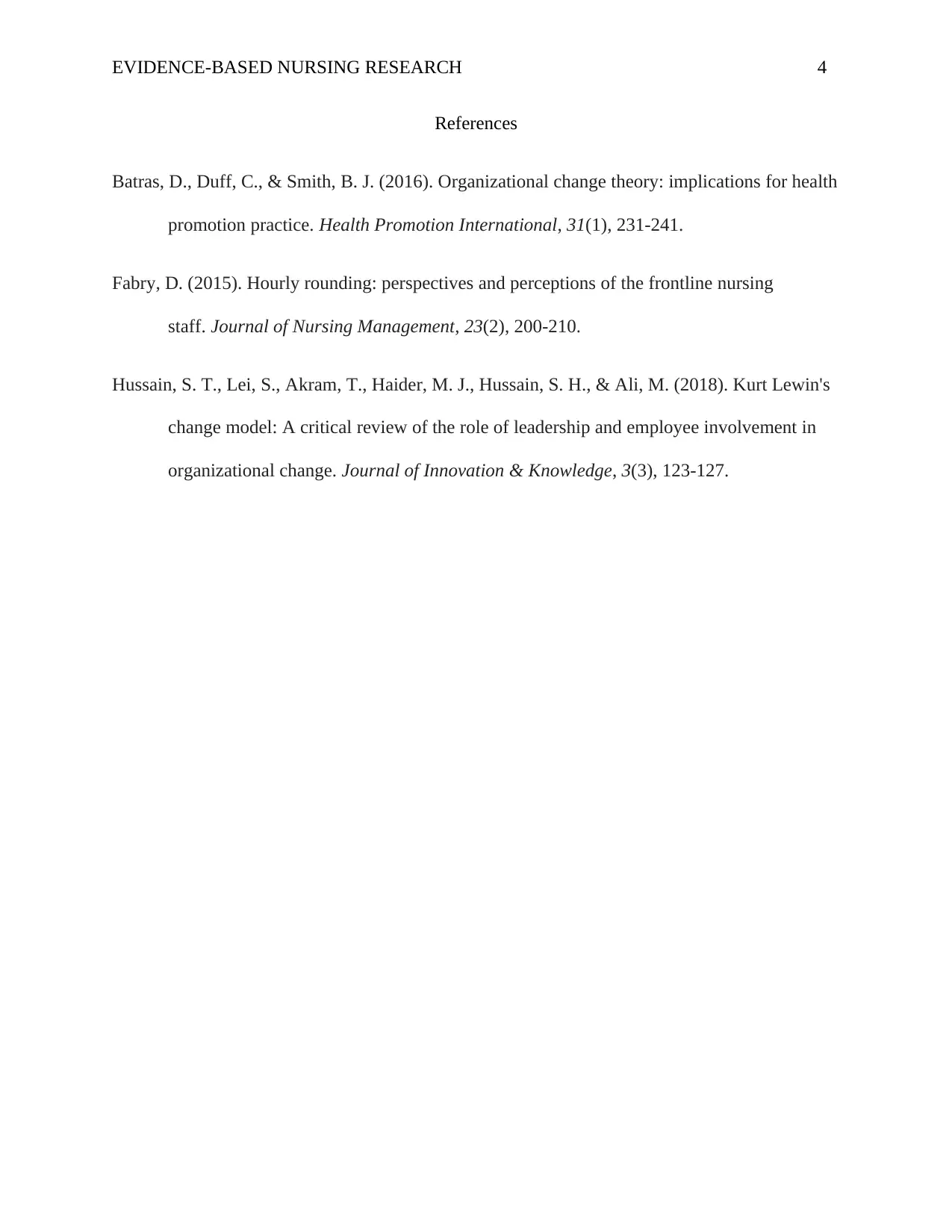NRS-490: Evidence-Based Nursing Research on Change Theories and SSC
VerifiedAdded on 2023/04/22
|4
|598
|167
Report
AI Summary
This report examines the application of change theories in nursing, specifically comparing and contrasting Rogers' and Lewin's change theories. The report is centered around the implementation of a skin-to-skin contact (SSC) project for newborn babies. It highlights the importance of understanding change theories for effective clinical practice and planned change. The comparison focuses on the stages of each theory, their suitability for short-term versus long-term changes, and their approaches to overcoming resistance. The report argues that Rogers' theory is better suited for the SSC project due to its emphasis on awareness, interest, evaluation, implementation, and adoption. The project aims to address the lack of SSC implementation in hospitals and the benefits of SSC for newborns. The report concludes by emphasizing the value of change theories in promoting positive change in nursing practice, especially in improving patient outcomes.
1 out of 4








![[object Object]](/_next/static/media/star-bottom.7253800d.svg)